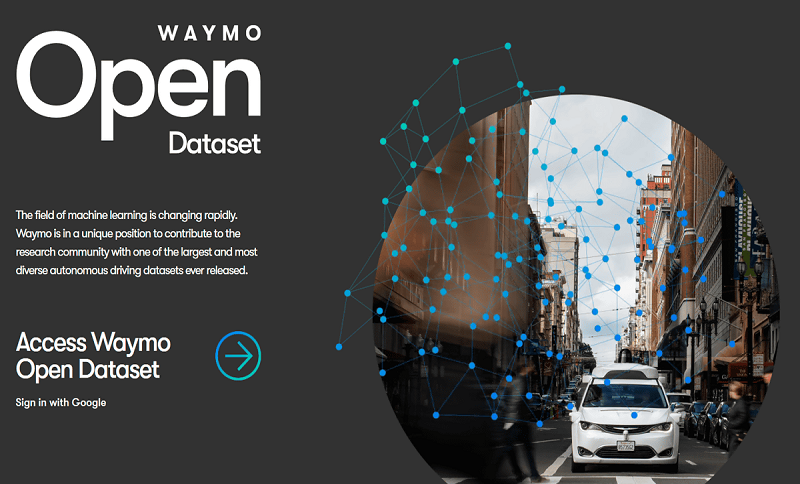Last modified more than a year ago

Waymo releases self-driving Open Dataset
Waymo has made its self-driving Open Dataset available to the research community. With significant stores of autonomous driving data, researchers at other companies as well as academics will be able to access and analyse the data.
Starting off in 2009 as the Google Self-Driving Car Project, Waymo has a lot of experience in the field of autonomous driving. The Open Data Set is one of the largest and most diverse self-driving data sets ever released for research. It tries to fill in the gaps by providing data collected from 1,000 driving segments done by Autonomous Vehicles (AV) on the road. Each segment represents twenty seconds of continuous driving done in a range of different driving conditions. This includes at night, during rain, at dusk and more in locations such as Phoenix, AZ; Kirkland, WA; Mountain View and San Francisco, CA. The data set also includes data from five of Waymo’s own proprietary lidars and five standard cameras that face front and to the sides (providing a 360 degree view captured in high resolution). It also includes the synchronisation Waymo uses to fuse its lidar and imaging data. Objects such as vehicles, pedestrians, cyclists, and signage are also labeled.
Representatives state that the data was made available because companies working in the field are currently inhibited by the lack of suitable data sets. Waymo wants to contribute their part in providing data in order for researchers to begin asking the right questions. Drago Anguelov, Head of Research, denied that the release was an admission that the company is having problems solving these issues and rather that there is always room for improvement in terms of efficiency and scalability because it is a developing field. The goal is to try and get others into thinking about their problems and working together, as opposed to doing work that is potentially not impactful. There is also skepticism about the openness of the data and how it can be used. During the briefing, Product Lead at Waymo Vijaysai Patnaik explained the general expectation about who they expect might make use of the data and for what purpose. While there is a specific licensing agreement and the data is not for commercial use, the definition of research is fairly broad. Universities, PhD students, independent research labs, and robotics labs are among the expected audience. Companies can also use the data as long as they comply with the license agreements.
While other companies such as Lyft and Argo AI have done similar things, Waymo is leading the rest when it comes to actual time on the road and miles driven. Read more here.


